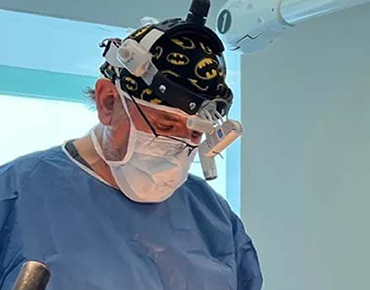How Long Do Breast Implants Last?
What Is the Lifespan for Breast Implants and Will They Last a Lifetime?


Breast augmentation is the most common cosmetic surgery procedure in the nation, so an increasing number of women are opting to have breast implants to alter the size and shape of their breasts. As interest in breast implant surgery grows, so do the queries, with many women wanting to know: how long do breast implants last?
The choice to get breast implants is a significant one. It is a financial commitment made to assist you in developing the feminine curves you desire, frequently enhancing your self-image. Nevertheless, you shouldn’t plan to have breast implants for the rest of your life.
Most people are aware that breast implants eventually need to be replaced because they don’t last forever. How frequently breast implants need to be revised is something that most people are unaware of. Some people believe that getting implants will require them to be replaced every few years.
Breast implants do not last forever, and women may decide to have them removed for a variety of reasons, typically 10 to 20 years after their initial surgery. Your plastic surgeon will discuss how to care for your implants and the required checkups you should attend before you decide whether to have implants. This will help your implants last longer.
What Is the Average Duration of Breast Implants?
Breast implants aren’t meant to last a lifetime, but that doesn’t mean they can’t. Saline implants and silicone implants typically last between 10 and 20 years. Many breast implants are, however, removed earlier due to complications or aesthetic issues. Within 8 to 10 years, up to 20% of patients have their breast implants removed or replaced.
Average Breast Implant Life Span & Chances of Implant Rupture


The average lifespan of today’s implants is over ten years, with a one percent annual increase in the risk of rupture. Therefore, your chance of a breast implant rupture or other complications increases as your implants get older. Breast implants frequently last 20 years or longer in good condition. Every patient is unique, and your body and how you care for your implants will affect how long they last.
Although they are made to last a long time and be safe, breast implants are not thought of as “lifetime devices.” Today’s breast implants, which are the results of decades of research into stronger shells and more stable fillers, should last patients more than ten years, with the likelihood of rupture rising by about 1% annually. Thus, there is a 90% chance that the breast implant will still be completely functional after ten years.
When choosing breast implants, women should be ready to maintain their regular annual checkups as well as carry out self-inspections to make sure the breast implants are still in good condition. Implants will age in a variety of ways throughout their lifetime, just as there are many different bodies and breast types and what seems like an infinite number of combinations of breast implant size, shape, shell, filler, and placement. Over time, the breast tissue itself will also change.
The appearance of breasts that have undergone augmentation or a breast liftcan be affected by increased skin laxity, changes in body weight, and hormonal changes.
The Lifespan of Your Breast Augmentation Can Be Extended with Proper Care.
The care of your breast implants should start during your breast augmentation recovery to increase their longevity. For instance, during recovery, your plastic surgeon may advise you to wear a support garment or surgical bra. If you don’t abide by these recommendations, the lack of support may eventually cause more sagging of the breast tissue.
Always adhere to your plastic surgeon’s recommendations for annual exams and routine self-inspections. The FDA advises getting an MRI three years after your initial surgery and then every two years after that if you have silicone implants. Preventing the need for breast implant replacement by taking good care of your breast implants can help you maintain your new appearance for longer.
How Can I Tell If I Need to Replace My Saline or Silicone Implants?
Additionally, especially if you have had kids, your implants may move as you age. It is advisable to have your implants replaced if they shift position. If you experience significant weight gain or loss, breast implants may also move. Last but not least, you might decide to exchange your present implants for new ones that are bigger or smaller in the future.
The longevity of implants is not assured. For several reasons, you might need to have breast implant removal or replacement. Working with a board-certified plastic surgeon and adhering to all postoperative instructions are the best ways to ensure their longevity.
This is an excellent opportunity for having your implants replaced! If you’re ready to have your implants revised or to get them for the first time, schedule a consultation for breast revision or breast augmentation right away! Visit our website at VIDA Beauty and Wellness to make an appointment for your consultation and to learn more.